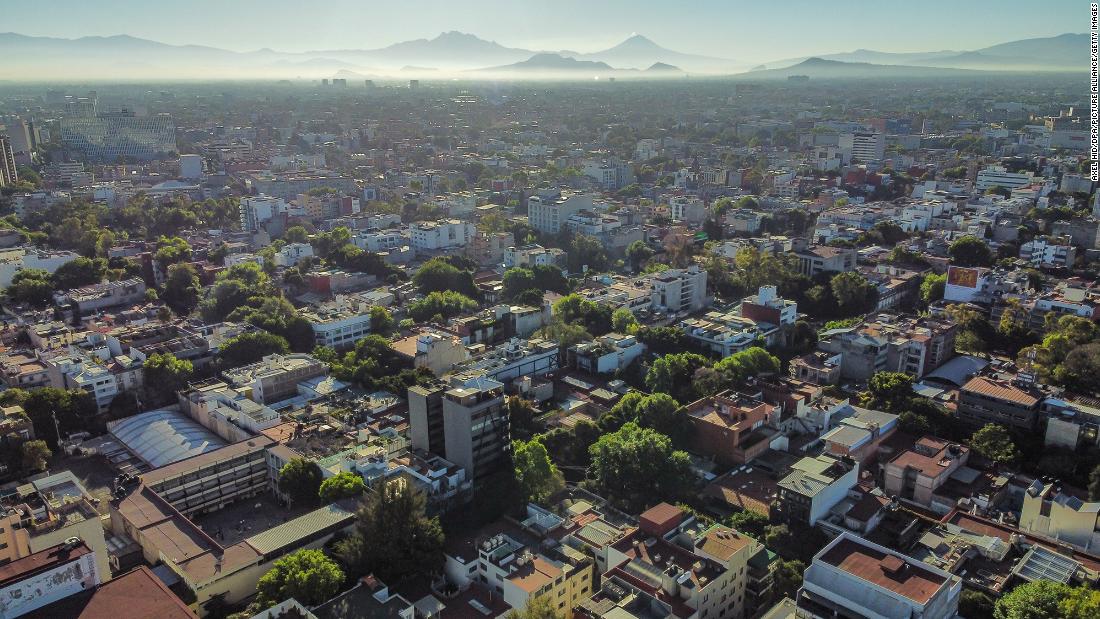
“They arrived and told us we had five minutes to get everything out,” Ortiz said, recalling her family’s eviction in February.
Ortiz, 55, and her four siblings had taken over Tortería Colima from their father, who started it as a bakery in 1968. The siblings expanded it into a restaurant, which grew popular among locals in Mexico City.
For 54 years, the Ortiz family ran its business from the ground floor of a four-story building, located at a busy corner in the increasingly desirable Roma neighborhood.
But in recent years, the family watched as the community around them changed. An influx of foreigners, mostly from the US, inspired Mexican landlords to renovate and remodel their properties to accommodate the wealthier arrivals. Ortiz watched as visitors and tourists suddenly became full-time neighbors.
The Ortiz’s landlord followed the business trend. The family tried to push back and keep their space, but after a lengthy legal battle they were ultimately evicted in February. More than a half century of belongings were piled up on the street as they were forced out. The building is now being renovated into high-end apartments.
“A lot of pain … They hurt me a lot,” Ortiz said, washing dishes alongside two of her sisters. They now work at another restaurant — no longer as owners but as employees — in a far less central location than Tortería Colima.
As renovations are underway in the floors above their now-shuttered restaurant, across the street sits a storefront with a sign appealing to new residents. It reads: “Hello Mexico City!” … in English.
“Please leave, we don’t want you here!”
“It’s pretty, their money is worth more here, they can live in a house or apartment that’s really nice and big, create a better life,” Fernando Bustos Gorozpe said. “But it’s not as though there’s an interest to participate and understand the local culture here.”
The US State Department says 1.6 million US citizens live in Mexico. But it doesn’t know how many are living and working there on tourist visas. The Mexican government does not track that data either, but it recorded more than 5.3 million American tourists flying into Mexican airports from January to May 2022. That’s nearly a million more compared with that same period in 2019.
Real estate agent Edyta Norejko said she gets dozens of calls weekly from Americans inquiring about relocating to Mexico City.
In 2014, Norejko, who’s originally from Poland, and her husband, Eduardo Alvarez, a Mexico City native, created their real estate firm with foreigners in mind. The say about 70% of their business comes from clients outside of Mexico who aspire to live in the country’s capital city.
“There is a lot of benefit about the foreigners living in Mexico City,” Norejko said, referring to the tourism revenue generated by Americans traveling to Mexico. “We need them.”
In the first five months of 2022, tourism from US travelers generated nearly $11.5 billion in revenue for Mexico, according to the country’s secretary of tourism. It’s on track to surpass pre-pandemic levels.
“It’s money that comes in, but that only ends up in the hands of a few people,” Bustos Gorozpe. “And locals end up displaced because they can no longer pay for these areas that’ve become very expensive.”
In neighborhoods like Roma and Condesa, charming cafes and trendy restaurants now cater to English-speaking expats. Bustos Gorozpe has noticed fewer foreigners making the effort to speak Spanish, and in some cases assuming the locals should understand English. That’s led to frustrations rising among some residents.
“Of course, this is not like, ‘We hate people from the outside,'” Bustos Gorozpe said.
But Bustos Gorozpe said signs posted in one gentrified community do express a growing anger.
“They read, ‘Please leave, we don’t want you here!'”
Digital Nomads
Among the US expats who’ve flocked to Mexico City in recent months is 37-year-old Erik Rodriguez.
Rodriguez originally traveling to Mexico City as a tourist, and now lives in the city and works remotely as an economic development analyst for a US-based agency.
Although his grandparents were born in Mexico, Rodriguez admitted he’s not in Mexico City to rediscover his roots or improve his Spanish, of which he speaks only a little. He’s there to save money while still enjoying a quality lifestyle.
“In San Diego my apartment (a studio) was probably $2,500 (a month),” he said. “Here I have a one bedroom and I pay $800 a month.”
Rodriguez and other so-called, ‘digital nomads’, can be seen in city cafes or in parks, laptops open, busy at work. He said when he first arrived in Mexico City, he felt nothing but welcomed.
“I think there was a sense of ‘we want people to come here to stimulate the economy. Thank you for being here.’ But I know that recently there’s been complaints from locals about the effect that expats living here has had on their own lifestyles,” he said.
Rodriguez says he isn’t sure about staying in Mexico long term. But, he added, “It is starting to feel like home.”
